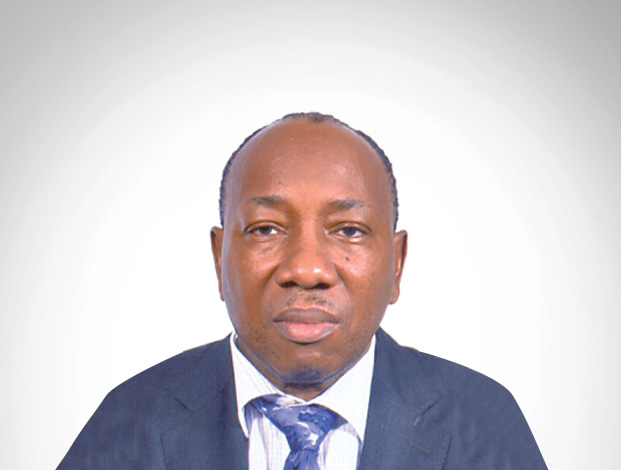Harness Nigeria’s value

Victor E. Eromosele, the chairman and CEO of M.E. Consulting, talks to TOGY about the outlook for natural gas, the state of project finance and the structure of the petroleum business in the country. M.E. Consulting provides business strategy, research and financing services, with special focus on the energy sector.
• On financing: “Good projects will always get financed. Finance is never a problem except for projects that are not bankable.”
• On NLNG: “Nigeria LNG’s Train 7 final investment decision ought to have been taken much earlier. Consider that Train 6, which was built around 2006-2007. Yet Nigeria is probably the second-largest gas flaring country in the world, after Russia. We ought to have implemented our development plans a lot more speedily.”
• On development: “Nigeria has never been short of plans, but it has been short of willpower to implement. It is not all about reforms, but about drive and the right mindset.”
Most TOGY interviews are published exclusively on our business intelligence platform TOGYiN, but you can find an abridged version of our interview with Victor E. Eromosele below.
How do you assess developments in the gas sector?
Gas development is heading in the right direction but could be much faster. Nigeria LNG’s Train 7 final investment decision ought to have been taken much earlier. Consider that Train 6, which was built around 2006-2007. Yet Nigeria is probably the second-largest gas flaring country in the world, after Russia. We ought to have implemented our development plans a lot more speedily.
We obviously should have developed the petrochemicals and fertiliser sectors to more fully monetise Nigeria’s abundant gas resources. Courtesy of the Dangote Complex, it is heartwarming that we finally took the bull by the horns. NNPC for several years had different plans for building more refineries, but somehow they never panned out. Nigeria has never been short of plans, but it has been short of willpower to implement. It is not all about reforms, but about drive and the right mindset.
Will financing constrain project development going forward?
Good projects will always get financed. Finance is never a problem except for projects that are not bankable. Lenders tend to price-in country risks for Nigerian projects. However, these risks tend to be exaggerated as the attributable country risk premium is often unrealistic. It must be said that with a bit of creativity, you can successfully finance anything.
A great example is First E&P’s USD 750-million financing deal with Schlumberger. Financing oil and gas projects needs creativity, as well as the right underlying structures.
How should the financing structure of Nigeria’s oil and gas industry evolve?
A lot of value is lost by the Nigerian oil and gas industry because of the adoption of the current unwieldy joint venture structure. Much of that can be resolved if the authorities create more NLNG-like entities: incorporated joint ventures [IJVs] for new mega oil and gas projects. All parties will then sing from the same hymnbook and business will be done like business. In contrast, the existing JV structure is grossly inefficient.
In the IJV structure, the government can put as much or as little investment as it desires. Like NLNG, it should run well. That’s the way forward. Nigeria should then be in a better position to attract financing for its projects. Nigeria Inc. can always earn money through taxation and dividends.
For more information on the Nigerian market, see our business intelligence platform, TOGYiN.
TOGYiN features profiles on companies and institutions active in Nigeria’s oil and gas industry, and provides access to all our coverage and content, including our interviews with key players and industry leaders.
TOGY’s teams enjoy unparalleled boardroom access in 35 markets worldwide. TOGYiN members benefit from full access to that network, where they can directly connect with thousands of their peers.
Business intelligence and networking for executives: TOGYiN
Recent Posts
Building trust in Kuwait’s local lubricants
Adnan Ashkanani, general manager of Kuwait Lube Oil Company, talks to The Energy Year about current dynamics in regional markets… Read More
A logistics specialist delivering for Angola’s IOCs
Erwin Krueck, managing director of All Brokerage Solutions (ABS) in Angola, talks to The Energy Year about how the company… Read More
A strategic approach to service optimisation
Russell Boodoo, regional business development manager at TOSL Engineering, talks to The Energy Year about the company’s role in supporting… Read More
Experience brings business in Kuwait
Suresh Pillai, CEO of Mark Technologies, talks to The Energy Year about the company’s involvement in Jurassic gas production and… Read More
Enhanced well services in Trinidad and Tobago
Narvin Salick, district manager of Gyrodata Trinidad, talks to The Energy Year about how the company has been impacted by… Read More
Chevron: 70 years of commitment in Angola
Billy Lacobie, CABGOC’s managing director for Southern Africa, talks to The Energy Year about recent strategic and operational developments in… Read More
 Nigeria
Nigeria 




